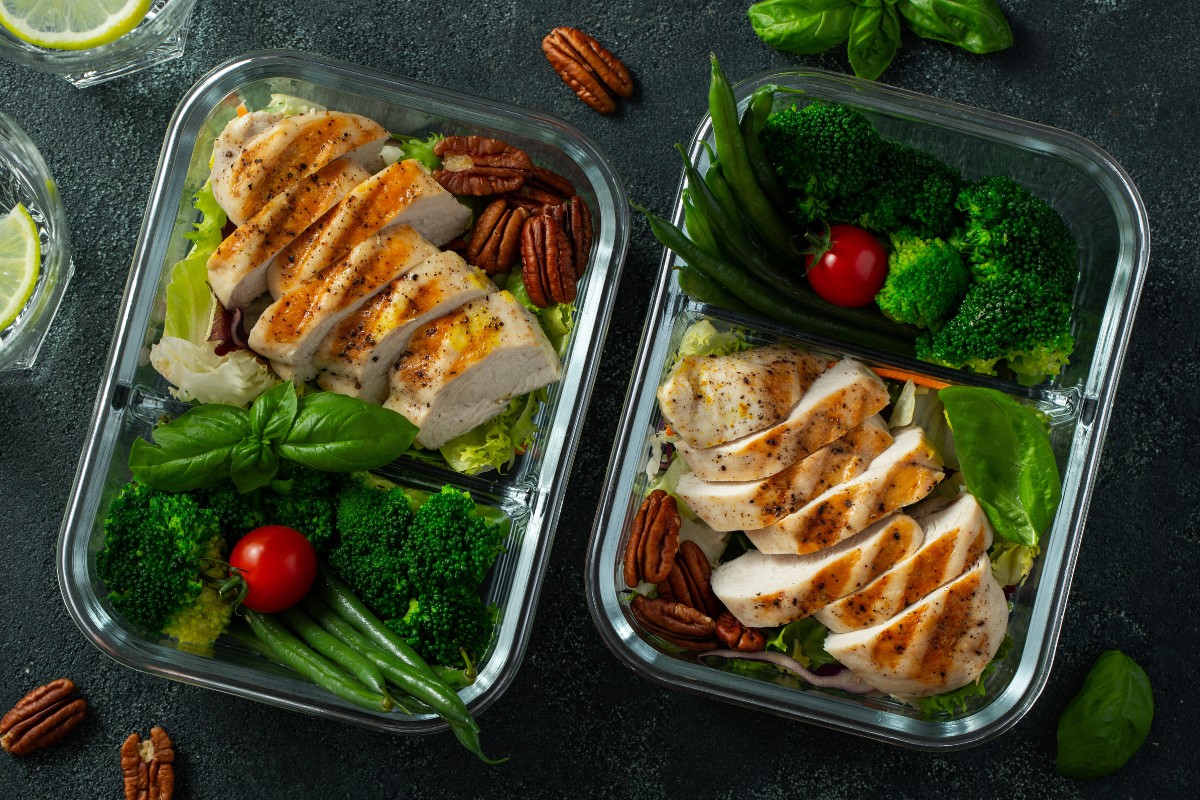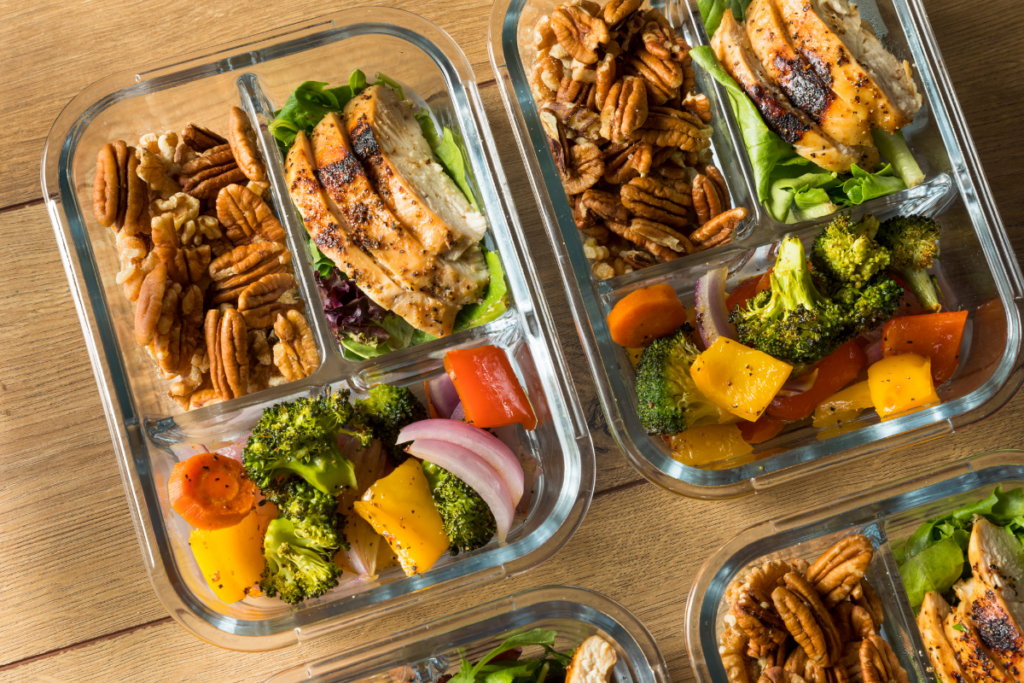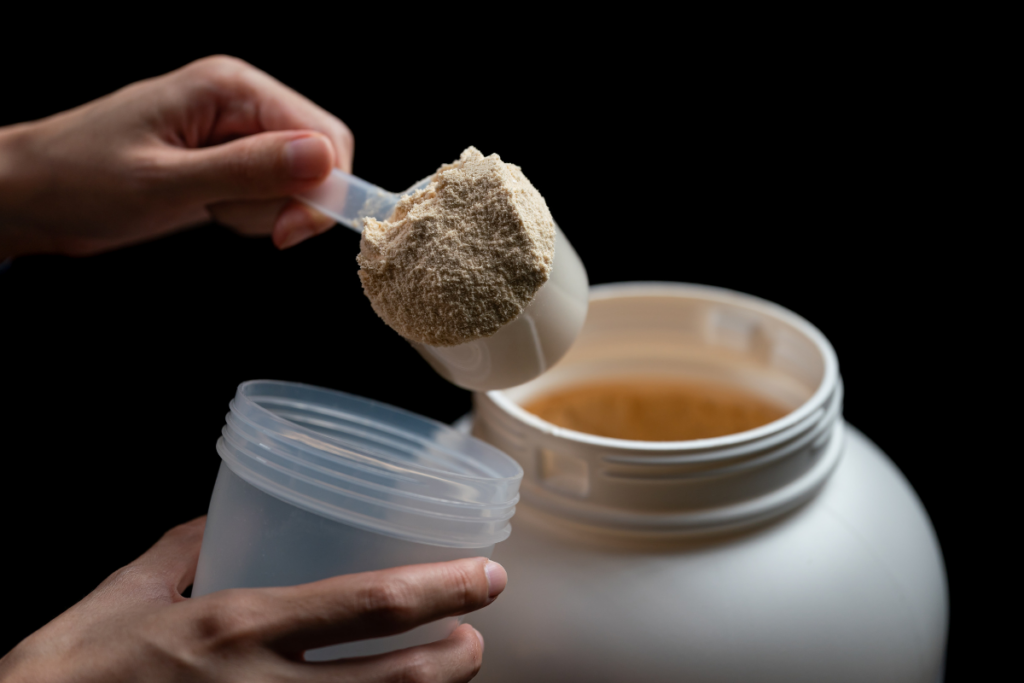Boxing is a physically demanding sport that requires a combination of strength, speed, and endurance. Proper nutrition is essential to performing at your best. Whether you are training for a fight or just for fitness and fun, what you eat before and after your sessions can make a significant difference in your performance and recovery.
Here are some tips from our nutrition experts to fuel efficiently.
What to eat BEFORE a boxing training session?
-
Carbs are key
Carbohydrates are your body’s primary source of energy. Eating a carbohydrate-rich meal before training ensures that your muscles have the glycogen stores they need for a high-intensity workout. Opt for complex carbs like whole grains, brown rice, or sweet potatoes. For a quick snack before a session, a fruit, like a banana or an apple, or a piece of whole-grain toast with a spoon of jam can be perfect.
-
Include Protein
Protein helps with muscle repair and growth. Incorporate a moderate amount of protein in your pre-training meal (2-3 hours prior) to keep your muscles in top shape. Lean meats like chicken, fish, or plant-based options such as beans and lentils are excellent choices.
-
Stay Hydrated
Hydration is crucial for maintaining performance and preventing fatigue. Aim to drink at least 500ml of water 2-3 hours before training, and have a small amount 30 minutes before starting. Avoid sugary or caffeinated drinks as they can lead to dehydration.
-
Timing is Everything
Aim to eat a balanced meal 2-3 hours before your training session. If you are eating closer to your workout time, go for a smaller, easily digestible snack to avoid any stomach discomfort and make sure you have glycogen available to use.
What to eat AFTER a boxing training session?
-
Replenish Glycogen Stores
After a tough boxing class, your glycogen stores will be depleted – they should be! Consuming carbohydrates post-training helps to replenish these stores and speed up the recovery. A fruit smoothie or a bowl of porridge, sweet or savoury, are great options.
-
Repair with Protein
Protein intake post-workout is essential for muscle repair and recovery. Aim for about 20-30 grams of protein within an hour after training. This could be a protein shake or a bar, a serving of Greek yoghurt, or a meal with lean meat or tofu.
-
Rehydrate and Replenish Electrolytes
Rehydrating after training is just as important as before. Water is usually sufficient, but if you have had an especially intense workout or sweat a lot, consider an electrolyte drink. Coconut water is a natural alternative that provides potassium and other electrolytes without added sugars.
-
Include Healthy Fats
Healthy fats can aid in overall recovery and provide sustained energy. Avocados, nuts, seeds, and fatty fish like salmon are excellent sources. Incorporate these into your post-training meals for a well-rounded diet.
Sample Pre- and Post-Training Meals
Pre-Training Meal (2-3 hours before)
- Grilled chicken breast with rice and steamed vegetables
- Whole grain pasta with beef and marinara sauce
- Brown rice with tofu and stir-fried vegetables
- Hawker option: Hainanese chicken rice (opt for brown rice if available)
Pre-Training Snack (30 minutes before)
- A banana with almond butter
- A small smoothie with berries
- Whole grain toast with peanut butter or jam
Post-Training Meal (1-2 hours after)
- Grilled salmon with sweet potato and green beans
- A smoothie with spinach, banana, protein powder, and milk (regular or nut)
- Quinoa salad with chickpeas, cucumber, and cherry tomatoes
- Hawker option: Sliced fish soup with brown rice
Post-Training Snack (right after)
- Greek yoghurt with honey and nuts
- A protein shake or protein bar
- Hard-Boiled eggs
- Tuna with crackers
- Hawker option: Chwee kueh (steamed rice cakes with radish)





